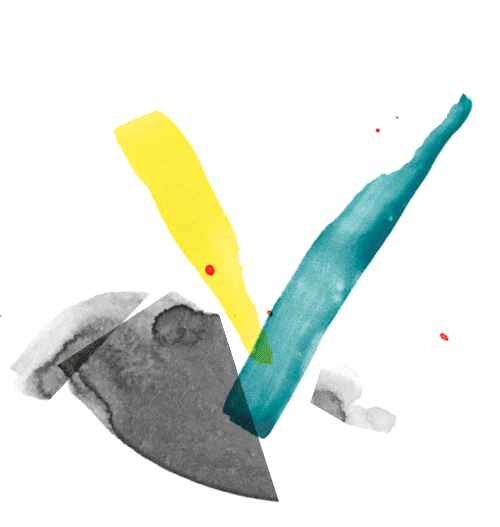

Sign up for our newsletters. You can change the settings or unsubscribe at any time.
Thank you for your subscription. We have sent you an e-mail with a confirmation link.


exp. 1
exp. 2
exp. 3

Cansu Çakar
Venues: KW Institute for Contemporary Art, 11th Berlin Biennale c/o ExRotaprint
Cansu Çakar
Born 1988 in Istanbul, TR – lives and works in Izmir, TR
The struggles between the traditional and the modern that define contemporary Turkey underlie the stories that Cansu Çakar renders in delicate detail. In her series Labyrinth to Kybele (2020), Çakar creates a landscape of vignettes drawn from anecdotes in the Turkish press: A man murdered his daughter, after the look in her eye as she made breakfast convinced him that she was possessed by evil; a family tree shows the characters in this real-life drama. A watery setting refers to two treasure hunters who were granted governmental permission to lay a lake dry with explosives, making it into a black hole; nearby village officials comment that they are glad the lake is gone because its depths were a danger to local children. Another scene, featuring a maze-like architecture dotted with female figures, is inspired by a rape trial in which the defendant’s female lawyer interrogates the victim with the malicious logic: “I am also a woman. Why have I not been raped?”
A keen observer of the social fault lines in Turkey today, the artist works in miniature painting as a gesture synonymous with tradition. Reviving this ancient method of storytelling, Çakar’s practice reflects on how society deals with everyday violence and injustice—and how gender inequality impacts women. The labyrinth represents the enveloping silence of a culture of oppression, which for Çakar is passed on from generation to generation through the legitimization of tradition-dominated narratives, a process in which the mother plays a central role. At the heart of the labyrinth is Kybele, an ancient Anatolian mother goddess who embodies the unlearning of handed-down power structures and institutions—a symbol of nurturing and hope.
In ExRotaprint the artist has made a large-scale wall painting of one of the motifs in her miniatures: an inclusive sun, bored by its divine position, that touches everyone with its light.
Laura Schleussner
By using this website you agree to the use of cookies in accordance with our data privacy policy.

Cansu Çakar
Venues: KW Institute for Contemporary Art, 11th Berlin Biennale c/o ExRotaprint
Cansu Çakar
Born 1988 in Istanbul, TR – lives and works in Izmir, TR
The struggles between the traditional and the modern that define contemporary Turkey underlie the stories that Cansu Çakar renders in delicate detail. In her series Labyrinth to Kybele (2020), Çakar creates a landscape of vignettes drawn from anecdotes in the Turkish press: A man murdered his daughter, after the look in her eye as she made breakfast convinced him that she was possessed by evil; a family tree shows the characters in this real-life drama. A watery setting refers to two treasure hunters who were granted governmental permission to lay a lake dry with explosives, making it into a black hole; nearby village officials comment that they are glad the lake is gone because its depths were a danger to local children. Another scene, featuring a maze-like architecture dotted with female figures, is inspired by a rape trial in which the defendant’s female lawyer interrogates the victim with the malicious logic: “I am also a woman. Why have I not been raped?”
A keen observer of the social fault lines in Turkey today, the artist works in miniature painting as a gesture synonymous with tradition. Reviving this ancient method of storytelling, Çakar’s practice reflects on how society deals with everyday violence and injustice—and how gender inequality impacts women. The labyrinth represents the enveloping silence of a culture of oppression, which for Çakar is passed on from generation to generation through the legitimization of tradition-dominated narratives, a process in which the mother plays a central role. At the heart of the labyrinth is Kybele, an ancient Anatolian mother goddess who embodies the unlearning of handed-down power structures and institutions—a symbol of nurturing and hope.
In ExRotaprint the artist has made a large-scale wall painting of one of the motifs in her miniatures: an inclusive sun, bored by its divine position, that touches everyone with its light.
Laura Schleussner
Glossary of Common Knowledge
L’Internationale Online
Glossary
Touching Feeling. Affect, Pedagogy, Performativity
Eve Kosofsky Sedgwick
Monograph
I: Junto a las curadoras de la XI Berlin Biennale for Contemporary Art
Renata Cervetto, Lisette Lagnado
Conversation
O Bailado do Deus Morto
Flávio de Carvalho
Play
III: La familia son quiénes se alegran con nuestros actos diarios. Detrás de las curadoras de la XI
María Berríos, Agustín Pérez Rubio
Conversation
A Moment of True Decolonization / Episode #6: Sinthujan Varatharajah. Constructing the Tamil Eelam State
The Funambulist / Sinthujan Varatharajah
Podcast
By using this website you agree to the use of cookies in accordance with our data privacy policy.

Cansu Çakar
Venues: KW Institute for Contemporary Art, 11th Berlin Biennale c/o ExRotaprint
Cansu Çakar
Born 1988 in Istanbul, TR – lives and works in Izmir, TR
The struggles between the traditional and the modern that define contemporary Turkey underlie the stories that Cansu Çakar renders in delicate detail. In her series Labyrinth to Kybele (2020), Çakar creates a landscape of vignettes drawn from anecdotes in the Turkish press: A man murdered his daughter, after the look in her eye as she made breakfast convinced him that she was possessed by evil; a family tree shows the characters in this real-life drama. A watery setting refers to two treasure hunters who were granted governmental permission to lay a lake dry with explosives, making it into a black hole; nearby village officials comment that they are glad the lake is gone because its depths were a danger to local children. Another scene, featuring a maze-like architecture dotted with female figures, is inspired by a rape trial in which the defendant’s female lawyer interrogates the victim with the malicious logic: “I am also a woman. Why have I not been raped?”
A keen observer of the social fault lines in Turkey today, the artist works in miniature painting as a gesture synonymous with tradition. Reviving this ancient method of storytelling, Çakar’s practice reflects on how society deals with everyday violence and injustice—and how gender inequality impacts women. The labyrinth represents the enveloping silence of a culture of oppression, which for Çakar is passed on from generation to generation through the legitimization of tradition-dominated narratives, a process in which the mother plays a central role. At the heart of the labyrinth is Kybele, an ancient Anatolian mother goddess who embodies the unlearning of handed-down power structures and institutions—a symbol of nurturing and hope.
In ExRotaprint the artist has made a large-scale wall painting of one of the motifs in her miniatures: an inclusive sun, bored by its divine position, that touches everyone with its light.
Laura Schleussner
II: La Solidaridad va Más Allá de un Concepto. Entre las Curadoras de la XI Berlin Biennale
Lisette Lagnado, Agustín Pérez Rubio
Conversation
Touching Feeling. Affect, Pedagogy, Performativity
Eve Kosofsky Sedgwick
Monograph
#fight4rojava
Graffiti
Grupo Experimental de Cine en acción
Gabriel Peluffo
Drawing
Solidarity and Storytelling. Rumors against Enclosure
María Berríos
Essay
Invitation to the Species: Cecilia Vicuña
Tamaas / Cecilia Vicuña
Podcast
By using this website you agree to the use of cookies in accordance with our data privacy policy.

Cansu Çakar
Venues: KW Institute for Contemporary Art, 11th Berlin Biennale c/o ExRotaprint
Cansu Çakar
Born 1988 in Istanbul, TR – lives and works in Izmir, TR
The struggles between the traditional and the modern that define contemporary Turkey underlie the stories that Cansu Çakar renders in delicate detail. In her series Labyrinth to Kybele (2020), Çakar creates a landscape of vignettes drawn from anecdotes in the Turkish press: A man murdered his daughter, after the look in her eye as she made breakfast convinced him that she was possessed by evil; a family tree shows the characters in this real-life drama. A watery setting refers to two treasure hunters who were granted governmental permission to lay a lake dry with explosives, making it into a black hole; nearby village officials comment that they are glad the lake is gone because its depths were a danger to local children. Another scene, featuring a maze-like architecture dotted with female figures, is inspired by a rape trial in which the defendant’s female lawyer interrogates the victim with the malicious logic: “I am also a woman. Why have I not been raped?”
A keen observer of the social fault lines in Turkey today, the artist works in miniature painting as a gesture synonymous with tradition. Reviving this ancient method of storytelling, Çakar’s practice reflects on how society deals with everyday violence and injustice—and how gender inequality impacts women. The labyrinth represents the enveloping silence of a culture of oppression, which for Çakar is passed on from generation to generation through the legitimization of tradition-dominated narratives, a process in which the mother plays a central role. At the heart of the labyrinth is Kybele, an ancient Anatolian mother goddess who embodies the unlearning of handed-down power structures and institutions—a symbol of nurturing and hope.
In ExRotaprint the artist has made a large-scale wall painting of one of the motifs in her miniatures: an inclusive sun, bored by its divine position, that touches everyone with its light.
Laura Schleussner
Género y colonialidad en busca de claves de lectura y de un vocabulario estratégico descolonial
Rita Segato
Essay
Being in Crisis together – Einander in Krisen begegnen
Feminist Health Care Research Group (Inga Zimprich/Julia Bonn)
Online workshop
Solidarity and Storytelling. Rumors against Enclosure
María Berríos
Essay
New Look
Flávio de Carvalho
Performance
I: Junto a las curadoras de la XI Berlin Biennale for Contemporary Art
Renata Cervetto, Lisette Lagnado
Conversation
Undocumented Rumours and Disappearing Acts from Chile
María Berríos
Essay
By using this website you agree to the use of cookies in accordance with our data privacy policy.
By using this website you agree to the use of cookies in accordance with our data privacy policy.




